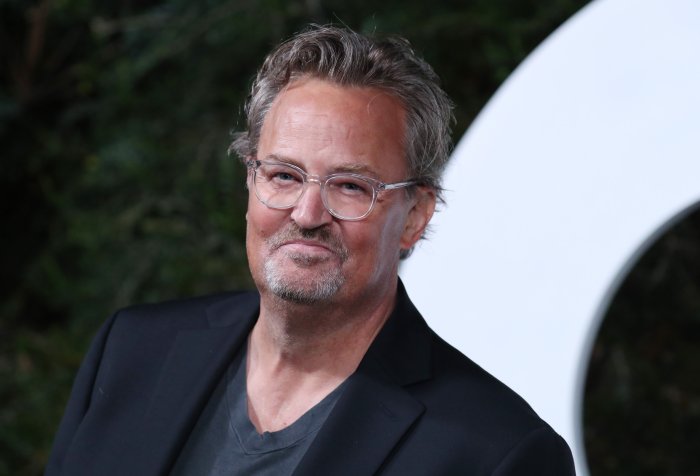In an interview with AARP The Magazine released on Feb. 1, 2021, the family of legendary singer Tony Bennett publicly revealed that the 18-time Grammy winner was diagnosed with Alzheimer's disease in 2016. "There's a lot about him that I miss," wife Susan — who is also Tony's caretaker — told the magazine, "because he's not the old Tony anymore. But when he sings, he's the old Tony." Keep reading for more famous people who've suffered from the neurodegenerative disease in recent decades…
Former President Ronald Reagan in 1994 revealed he had Alzheimer's disease. "I now begin the journey that will lead me into the sunset of my life," he wrote in a letter addressed to his "Fellow Americans." The former Hollywood star explained that he and wife Nancy Reagan publicly disclosed the news of his diagnosis in hopes of shining a light on the disease. "In opening our hearts, we hope this might promote greater awareness of this condition," he added. "Perhaps it will encourage a clearer understanding of the individuals and families who are affected by it." He died a decade later.
After two decades of suffering symptoms, Hollywood siren Rita Hayworth was finally diagnosed with Alzheimer's disease in 1980. "It was just so horrible to watch. She had to know. She had to know her mind was being robbed," the "Gilda" star's daughter and caretaker, Yasmin Aga Khan, told The Washington Post two years after the movie star's 1987 death, adding that "the family feels so helpless." Rita's diagnosis being made public in the '80s has been credited with significantly raising awareness of the disease.
RELATED: Stars diagnosed with Lyme disease
In 2002, Oscar-winning actor Charlton Heston publicly announced that doctors had confirmed he was "suffering symptoms consistent with Alzheimer's disease." The "Ben-Hur" and "The Ten Commandments" star explained, "For an actor, there is no greater loss than the loss of his audience. I can part the Red Sea, but I can't part with you, which is why I won't exclude you from this stage in my life." He vowed to work as long as he could but asked for grace. "If you see a little less spring to my step, if your name fails to leap to my lips, you'll know why," he said. "And if I tell you a funny story for the second time, please laugh anyway." He died in 2008.
It wasn't until after the 2016 death of comedy legend Gene Wilder that the world learned he'd suffered from Alzheimer's disease. When the star of "The Producers," "Young Frankenstein," and "Willy Wonka and the Chocolate Factory" passed away, his family revealed he'd been diagnosed three years earlier but that it "was his choice" not to disclose his illness in part because he didn't want to disappoint "the countless young children that would smile or call out to him, 'There's Willy Wonka.'" According to his family's statement, "He simply couldn't bear the idea of one less smile in the world."
Country music star Glen Campbell in 2011 announced that he had Alzheimer's disease. He and his family chronicled his journey as he went on a goodbye tour in 2012 — though he struggled to remember his lyrics, he remarkably did not lose the ability to play guitar. Glen also starred in a 2014 documentary focused on his final concert trek and how he coped with his illness, "Glen Campbell: I'll Be Me." He died in 2017, six years after his diagnosis.
Athlete Sugar Ray Robinson — the five-time world middleweight boxing champion considered by many to be the best fighter of all time – died in 1989 while suffering from Alzheimer's disease and diabetes.
Charles Bronson, the "Death Wish" franchise actor with a penchant for tough-guy roles, suffered from Alzheimer's disease in the final years of his life, according to multiple media outlets. His family confirmed the diagnosis in 2001, the Daily Mail reported. He died in 2003.
Oscar-nominated Emmy winner Burgess Meredith — who memorably starred in "Of Mice and Men" and played The Penguin on TV's "Batman" series as well as trainer Mickey in the "Rocky" film franchise during his six-decade career — lost his battle with Alzheimer's disease in 1997.
Juliana of the Netherlands — the country's queen from 1948 until her abdication in 1980 who was one of the most popular members of the Dutch royal family in history — suffered from Alzheimer's disease ahead of her 2004 death, husband Prince Bernhard of Lippe-Biesterfeld confirmed in 2001.
Singer Perry Como — who entertained fans for decades with his dulcet tones on hits like "Catch a Falling Star" as well as countless Christmas songs — died in 2001 after suffering from Alzheimer's disease in his final years.
David Prowse — the British bodybuilder-turned-actor who physically brought "Star Wars" villain Darth Vader to life in the franchise's early films (James Earl Jones provided the character's voice) — died from COVID-19 in 2020, but his daughter confirmed to The Sun that he'd previously been diagnosed with Alzheimer's disease in his later years.
Famed American painter Norman Rockwell died in 1978 after suffering from dementia and, according to many reports, Alzheimer's disease.
According to The Guardian, famed Dutch-born painter Willem de Kooning was diagnosed with Alzheimer's disease more than a decade before his 1997 death.















